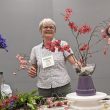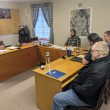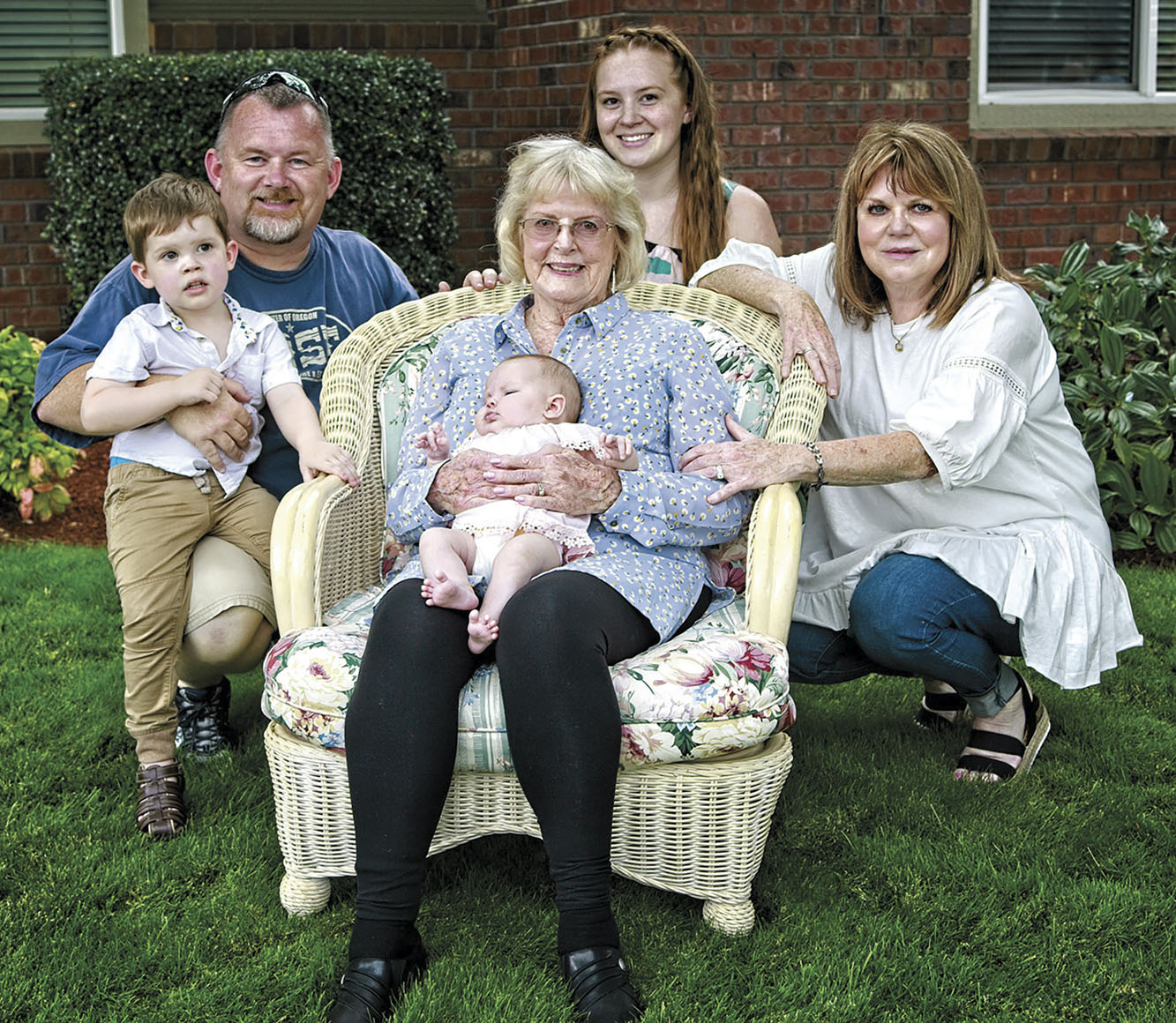By Kelly Kenoyer
Lebanon Local
For Brenda Hyland of Sweet Home, the coronavirus pandemic has meant more than not getting to eat out at restaurants.
She hasn’t hugged her mother since March 5.
“That’s a tough one,” she said, fighting back tears. “We’re a hugging family.”
Her mother, Marjorie Wilson, is a resident at Wiley Creek Community, which began allowing visits on July 25. She’s glad to be able to see her family again, as the restrictions have prevented her from going on her usual walks. “I feel like a hamster in a cage,” she said.
Oregon started allowing outdoor visitation at long-term care facilities in late July, and at least 12 facilities in Linn County have submitted plans to the state for outdoor visitation. At least a quarter of Oregon’s long-term care facilities have submitted plans so far.
Angie Kutsch, executive director at The Oaks in Lebanon, said her residents have been able to visit with family outdoors since early August. “it’s been going well!” she said. At least a dozen family members have participated in the visitations since then.
“It’s helped the residents stay in contact with their families and see them versus just talking on the phone. They’ve been looking forward to the visits,” she said.
Kutsch said residents have always had the right to go out with their families, so some residents have been visiting their family off the property. “When they come back, we have an advanced screening,” she said, and residents are also asked to wear masks inside the building when they’re not in their apartments. “Normally we would have parties and families over, but since the pandemic we’ve had to stop that,” she added. There haven’t been any coronavirus cases in The Oaks.
Kutsch said the outdoor visitations are a good opportunity for residents who are feeling lonely after isolating for so long because of the COVID-19 pandemic.
Some residents have used Skype and Zoom to visit with family virtually, but “it’s just not the same,” she said. Residents have also received window visitations. “We have some wonderful family members that are here all the time at the window.”
The outdoor visitations help family members feel closer to each other, even if they’re not physically that close, Kutsch added. “They still have to maintain a distance, but they’ll get some alone time together.”
The outdoor visitations require numerous safety protocols, including sanitation, mask use, and social distancing.
Visitors at Wiley Creek have to have their temperatures checked at the door. They also have to answer a series of questions about their health, recent travels, and the level of community spread where they live.
Families call the activity director to set up an appointment, then the visitor can see their loved one from across a long table. The visitations are set up in an outdoor patio, and the resident enters from a separate doorway inside the facility while the visitor comes from outside.
Hyland is now visiting her mother twice a week in this manner. She used to have picnics by her mother’s porch each week, but those have been restricted as well. She gives the facility a lot of credit for “going the extra mile” to help residents see their families. “This is a wonderful facility,” she said.
Her mother added, “Everyone has tested negative and they want to make sure it stays that way.”
Wilson turned 90 on July 29 and, of course, wasn’t able to hug her family like she had hoped. But she was grateful that she got to see her 10-year-old great-granddaughter, Jorie Evelyn Emmert, who shares a birthday with her. Hyland said staffers even scrubbed the balloons the family brought so they could get to Wilson inside the facility.
But staff at Wiley Creek worked extra hard to make her birthday special, Hyland said. Resident Assistant Cathey Franklin even came in on her day off to decorate Wilson’s room for her birthday. “She’s 90 years old, I think that’s pretty amazing,” Franklin said.
She’s doing everything she can to make sure residents feel happy despite being so confined. “I brought a cotton candy machine and slushies,” she said. “I truly believe that this is their home and I’m their guest,” she added.
That effort hasn’t been unnoticed. Despite the frustration of only being able to see each other across a table or over FaceTime, Hyland and Wilson are grateful to the caregivers for everything they do. “It’s so stressful on the staff,” Hyland said, noting the work that goes into sanitizing everything and the limited staffing when someone stays home after getting any symptoms.
The Lebanon Veterans Home is also allowing outdoor visitation, a major change after a coronavirus outbreak hit the facility in April and May. For Director Abe Andrade, the visitations are a godsend after the losses caused by COVID-19.
“I lost some dear friends,” he said. “We lost some very amazing and very loved individuals. So we know how important it is to follow the protocols.”
“This virus is very serious. We lost some of America’s heroes to this virus, so it’s very, very real to us,” he said.
Opening for visitation is a challenge in a pandemic, but Andrade said it’s key for the mental health of residents. For the veterans in the Lebanon Veterans Home, isolation can be as bad as torture, he said. “The visitation program has relieved a lot of stress and loneliness.”
The home is also setting up a few outings for residents, though they’re making sure the groups are limited to two or three people who all live in the same building. They stay 6 feet apart in the van and wear PPE, but the precautions have allowed them to go for scenic drives and fishing trips.
“They can already leave and engage in any activity, so the best thing we can do is facilitate recreational activities that are organized by professionals who understand the protocols,” he said.
Family members can schedule with the residents in an outdoor setting, with strict screening protocols, masks, and distancing. Andrade said it’s key to allow these in-person visits, because online and window visitation don’t work for all residents, especially those with dementia.
The visitations help with general wellbeing, he added. “They can create an opportunity for new memories, and they get to share and talk about old memories,” he said.





